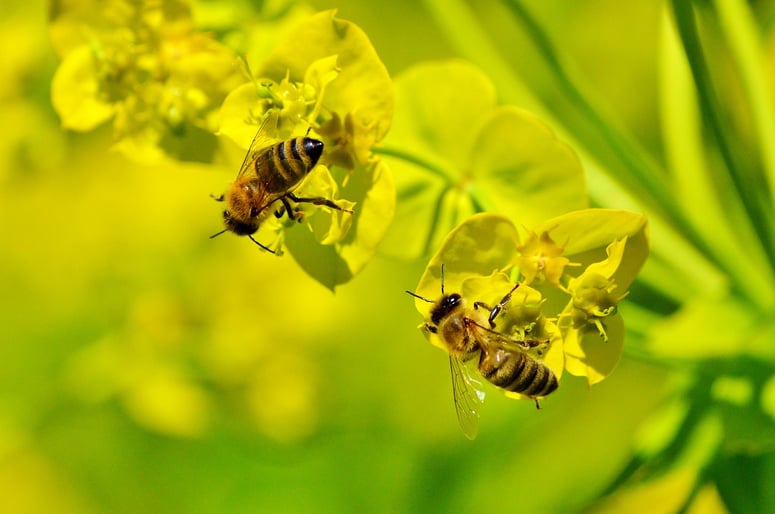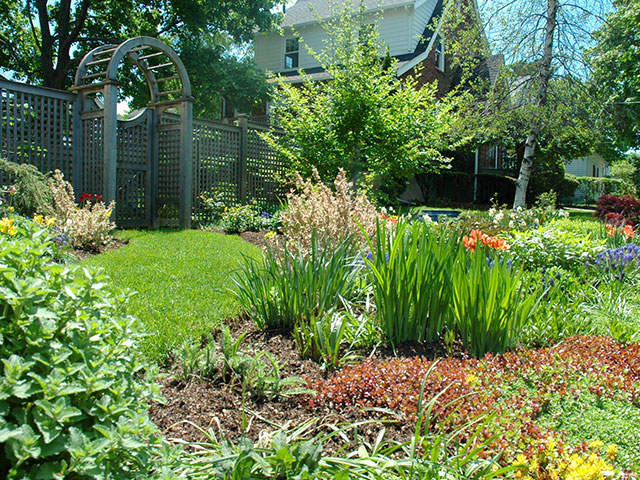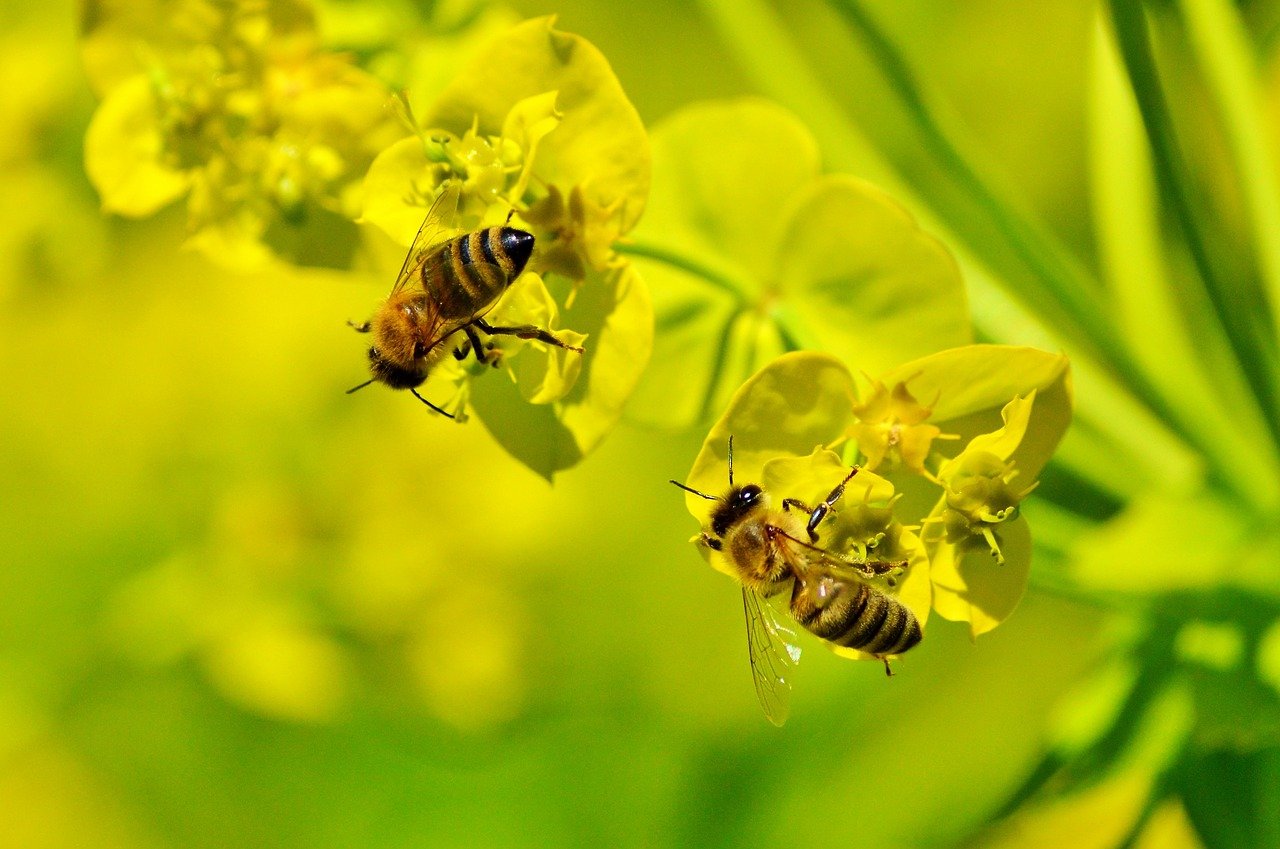Say the word “bees” around most people and the first thing that comes to mind is a black-and-yellow menace that terrorizes children and summer get-togethers.
But that’s an unfair and incomplete picture of the importance of honeybees to the world around us. Bees pollinate more than 400 different types of agricultural products, including many common fruits and vegetables. In 2010, honeybees helped produce $19 billion worth of crops - and that’s in the U.S. alone! They also produce one of the most common and delightful treats consumed by people today in many forms: honey.
Like every other state, honey bees are common in Massachusetts, both in nature and in beekeeping colonies. Whether you are a honey bee enthusiast thinking about starting a colony, want to attract them to pollinate your garden, or are looking to protect your property from bees, here’s what you need to know.

The Laws on Honey Bees in Massachusetts
The Commonwealth of Massachusetts does not require any official licensure or registration to become a beekeeper. However, individual cities and counties may have regulations that residents need to abide by. Be sure to check with your local authorities before you attempt to start a honeybee colony or keep bees on your property.
If you’re one of the homeowners looking to make sure bees stay away from where you live, there is no official government authority to help with removal. However, you can check out local beekeeping associations to get professional assistance with removing a swarm of bees. This is a much safer option than trying to do it yourself.
Attracting Honey Bees as Pollinators
Most people fall somewhere in the middle when it comes to bees - they don’t necessarily want to keep them away, but they probably aren’t interested in starting a colony either. However, you should encourage the presence of bees in your garden because they will help pollinate your plants, continuing their life cycle and ensuring your yard is full of vibrant flowers and shrubs.
Here are just a few of the plants that will help attract honey bees to your garden:
- Hyacinth
- Butterfly weed
- Clethra
- Honeysuckle
- Foxgloves
- Annis Hyssop

Be sure to conduct sufficient research and planning to ensure that you’ll be able to select the kinds of plants that will make a good addition to your yard or garden based on extending the bloom time, flower shape, colors, etc. It’s also better to plant flowers that have a single row of petals, as well as straight versus modified natives - they tend to have more pollen per plant, and it’s easier for bees to move down the entire row as they feed. Worker bees usually live for only about 6 weeks since they tire out after flying around 3 miles to gather pollen and nectar. By providing more local gardens, you can help bees save energy.
If you have children or family members who are frightened of bees, tell them not to be alarmed - they will generally only sting humans if they get too close to a nest, or if someone surprises them. If allergies to bee stings are a concern, make sure to arrange your plants and garden far enough away from your home to avoid the risk of bees getting inside or flying around your outdoor seating areas.
Bees might have a bad reputation in pop culture, but they aren’t the fearsome creatures some people make them out to be. If you manage your yard properly and select the right plants for your garden, you can reap the many benefits that honey bees will bring to your Massachusetts garden without worrying about getting stung. For help arranging a garden to attract pollinators or laying out your garden to keep bees away from your home, get in touch with the expert landscape designers at Moodscapes today.

Moodscapes LLC is an organic landscape design and service company with a focus on helping you extend your life outdoors to enjoy activities on your own, as a family and with friends. We create opportunities for you to commune with and find joy and peace in nature and to live in an ecologically friendly and healthy environment. Please explore our landscape services and the portfolio that demonstrates many examples of our work.




